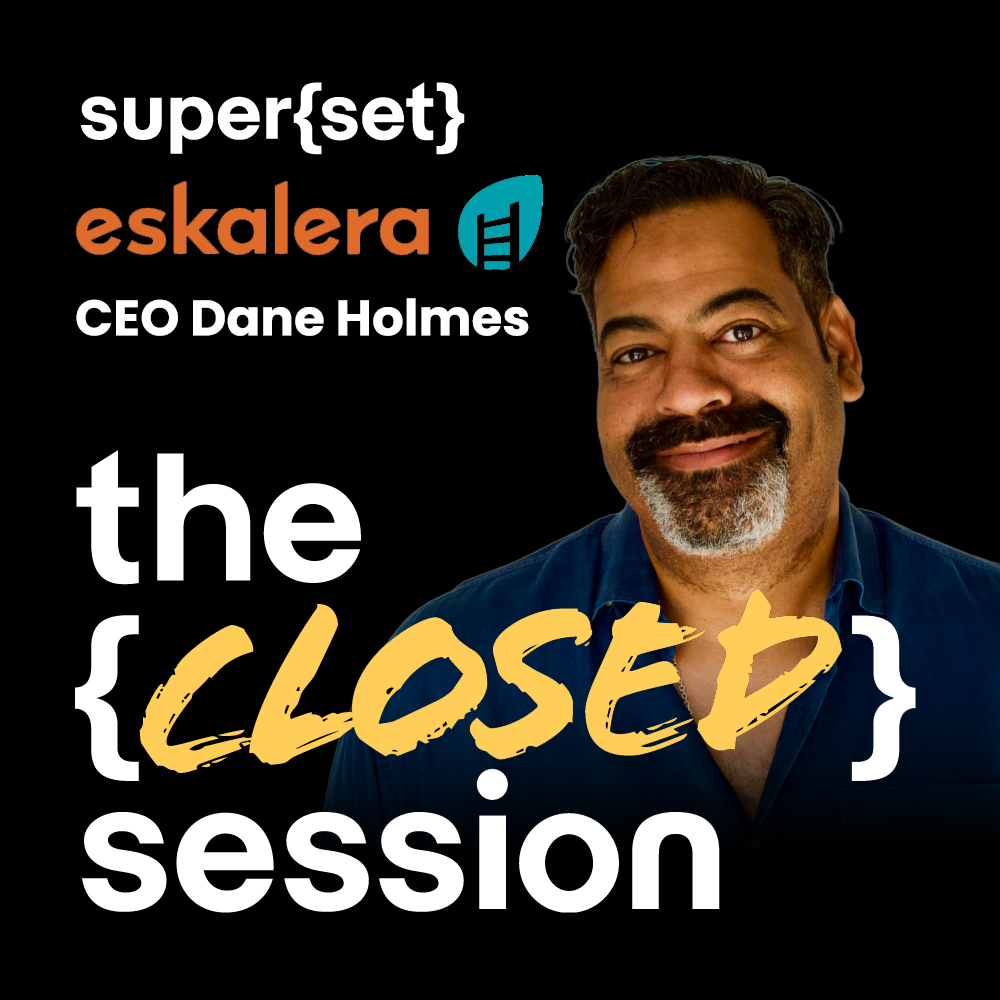
The super{set} CEO
At super{set}, the money from our venture fund exists exclusively to fund the companies emerging from our studio at inception and give the early team the time and focus to build. At inception, the last thing we want is the wrong CEO showing up, kicking up dust with too much certainty: the art in our model is finding the right CEO at the right time.
The average CEO isn’t suited for the early stage - the soul-crushing ambiguity, the need for collaboration and humility rather than go-it-alone decisiveness. At super{set}, we look for CEOs that can simultaneously scale up and scale down, that can see the big picture while also tackling the point-to-point challenges, all while being the face of company culture and talent recruitment.
This role isn’t for everyone, but what the super{set} team brings is the companionship of those that have done it before and been in the lonely shoes of the CEO. As special guest Dane E. Holmes from super{set} company Eskalera says, “Being a CEO is hard and lonely, doing it with other people who've done it makes it a little bit better. It's still very lonely, it's still very lonely, I wouldn't go to happy, I would say, but better.”
Tech, startups & the big picture
Subscribe for sharp takes on innovation, markets, and the forces shaping our future.
More Episodes
Explore additional conversations with entrepreneurs, investors, and leaders shaping the future of tech and business.

